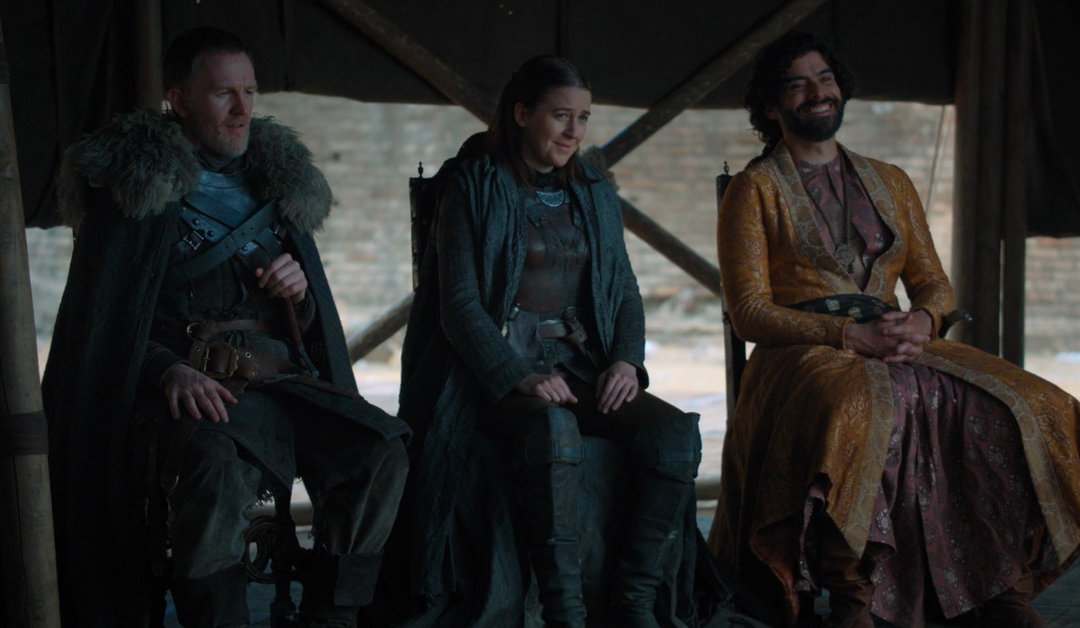Figuring out who will be the next king or queen isn’t an easy task when there’s no clear line of succession. In the real world, wars have been fought over it, and in Game of Thrones it’s no different. But after the show’s finale, it looks like picking a fit ruler might be much more common in Westeros’ future.
[Ed. note: This post contains major spoilers for Game of Thrones through the series finale.]
In the final episode of Game of Thrones season 8, when no clear king or queen could be crowned, a council of the lords and ladies of noble houses was formed. First, they were supposed to decide the fate of Tyrion Lannister. Instead, he helped them choose Westeros’ next king.
Many members of the council that chose Bran Stark as the king of the now-Six Kingdoms were familiar. Edmure Tully, Lord of Riverrun was present, as well as Gendry the legitimized bastard of House Baratheon, Samwell Tarly, Arya Stark, Bran Stark, Yohn Royce, Sansa Stark, Ser Brienne of Tarth, Ser Davos Seaworth, Robin Arryn and Yara Greyjoy. On top of those known representatives, there’s also the new prince of Dorne, who we’ve heard of but never seen, and four other House leaders.
There have been similar gatherings in Westerosi history — namely, the Great Councils that Westeros has had in the past. Anytime the inheritance of the crown is unclear a Great Council of Westerosi lords is held.
HBO
In fact, since Aegon united the Seven Kingdoms there have been three Great Councils — as well as a few attempted Councils. During the first Great Council, the decision was made to favor male heirs over female. The contention came when King Jaehaerys I’s firstborn son Prince Aemon died and Jaehaerys chose Aemon’s brother Baelon to suceed him, instead of Aemon’s daughter Rhaenys. Up until that point, Rhaenys would customarily have inherited the Throne. Jaehaerys brought in as many lords of the realm as he could, and the council numbered close to 1,000 when it ended nearly half a year later.
The next Great Council elected seven Lord Regents to rule until King Aegon III Targaryen came of age. At 11, he was deemed too young to rule. And the final Great Council was a complicated series of inheritance laws which eventually saw Aegon V Targaryen crowned and Brynden Rivers sent to the Night’s Watch for executing a potential claimant to the throne. Brynden Rivers would eventually become known as the Three-Eyed-Raven.
The latest mention of a Great Council was during the War of the Five Kings, when Stannis suggested that it was the only solution to the claim that Joffrey was not really a Baratheon, but a child born of Lannister incest. Ultimately that Council didn’t happen.
HBO
As for the Great Council that ends the show, Tyrion suggests that it should be the only way a king is chosen going forward. Instead of passing Kingship on through inheritance, Tyrion says that the lords of Westeros should get together and decide the next king.
In its own way, this new system breaks the wheel and achieves what a younger, more idealistic Daenerys Targaryen set out to do when she freed the Unsullied. No longer will Westeros have a king who is unjust and only wears the crown because of their lineage. Westeros will be more of a meritocracy than a straightforward monarchy, and the king will be chosen by some of the people.
Ultimately, because of where the show leaves off, it’s impossible to tell how this system goes or what the possible consequences are. In typical Westerosi fashion, past Great Councils have lasted months and led to plenty of deaths. But in this moment there’s the hope of a brighter future for Westeros.
